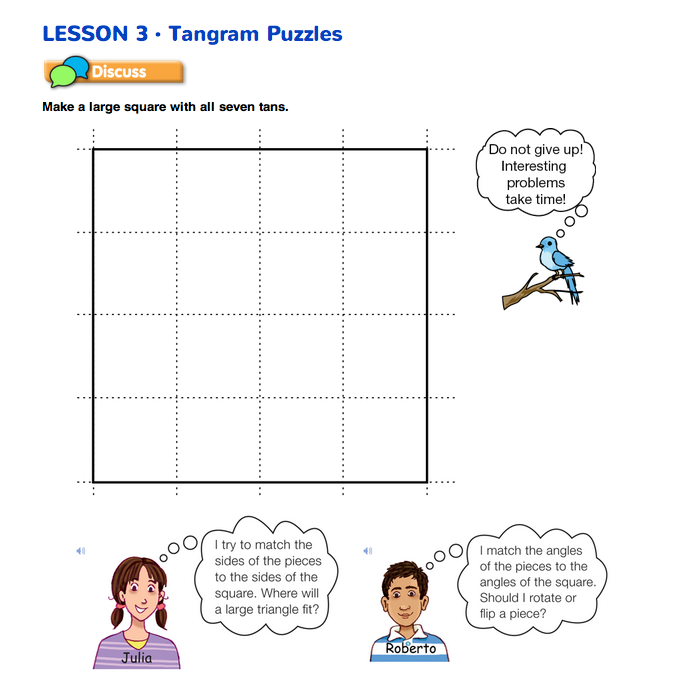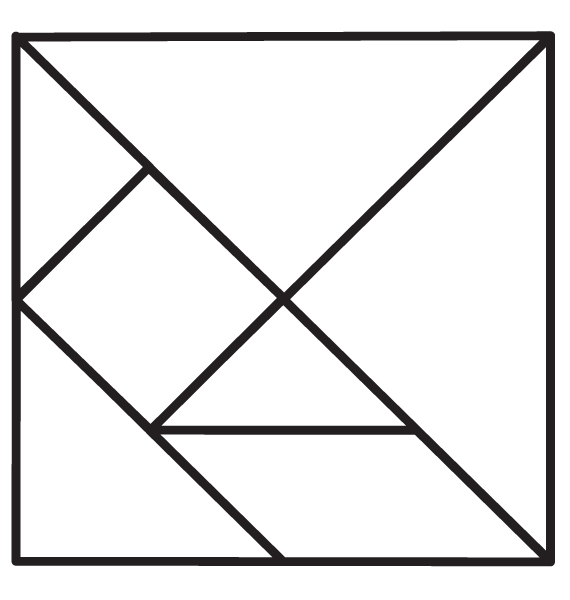Tangram Puzzles
Est. Class Sessions: 2Developing the Lesson
Part 1. Discuss Strategies for Constructing a 7-Piece Square
Direct students' attention to the Tangram Puzzles page in the Student Guide. As a warm-up to solving Tangram Puzzles 1–4, ask students to think about how they completed the large square with seven tangram pieces in the previous lesson. Ask a student to display a square while students rebuild their squares on the Tangram Puzzles page. See Figure 2.
Lead a discussion with some of the following questions:
If using the tangram pieces from the Tangram Set Master, there are four different lengths: 2 inches, 4 inches, about 1.41 inches (or a little less than 1.5 inches), and about 2.83 inches (or a little less than 3 inches). When making the 4-inch by 4-inch square, the only way to get a 4-inch side is by using one 4-inch length, or two 2-inch lengths.
To help the students discuss their work, choose a tangram piece, such as the large triangle which has limited possibilities for placement.
Ask:
As students discuss their work, some of the following strategies for solving the puzzle might emerge:
- matching lengths of the sides of the pieces to the lengths of the sides of the shape.
- matching angles of the shape with the tangram pieces. [This is a limited strategy for the square because many of the tangram pieces have right angles. However, for other shapes, this strategy does work well.]
- rotating the tangram pieces.
- flipping the tangram pieces.













